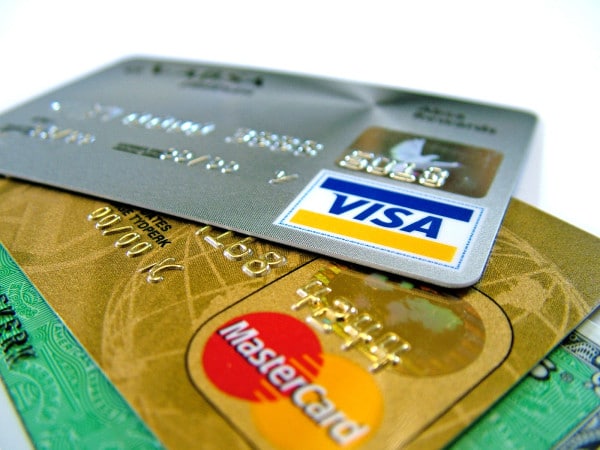Credit cards can make or break our credit, and with the way the economy is, it can cause piles of debt and a ton of stress. Was it worth it? Probably not. Want to learn how to pay off credit card debt and get rid of the headaches? Follow along as we do our best to show you how to pay off credit card debt.
Check Your Credit
The very first thing you’ll need to do to get started with consolidating credit card debt is to check your credit report. There are a lot of ways you can do this, as outlined here in our article titled 6 sites to check your credit report for free. These consumer credit reports will allow you to quickly and easily get an understanding of what’s going on under the hood of your credit profile. I highly encourage you to use AnnualCreditReport.com to do this as you can view all 3 reports at once to see what’s being reported, as each could be different.
Start with the Lowest Balance First
There’s 2 thoughts to paying off cards. Start with the smallest problem first or start with the largest. In this case it’s up to you!
Many people find that starting with the lowest balance first helps them remain focused, especially those with many cards. By starting with the smaller balance you will find faster reward for paying off the lowest balance, which makes you more motivated to get to the next lowest balance. Personally, this is my style. It’s much like training for a race, where you need to start small and hit goals along the way. It’s no fun going backwards (biggest to smallest), which would actually hurt motivation for some people.
Start with the Highest Balance First
This might seem a bit crazy to some, because I just said the opposite right above, but it makes sense. Some people find motivation from starting smaller, some find it from starting with the larger problem.
The higher balance cards are going to cause the most stress to your mind and the most damage to your credit. By getting the bigger pile out of the way first you will see how much more motivated you are by this feat. It’s much like anything else in life, attack the biggest problem and the smaller problems become much easier. This creates motivation in the individual and helps to boost their credit when it’s paid off. Once that’s done be sure to keep the balances paid off!
Get a Loan From Your Credit Union (or Bank)
Your local credit union or bank could be a source for a personal loan that can be used for credit card debt consolidation. These loans will vary from one institution to the next, so be sure to ask questions, including questions about the requirements of the loan. Your credit score may need to be at a certain point to qualify, so be sure to ask questions before giving them the opportunity to do a hard pull on your credit.
Be wary of online lenders, especially those that make claims that credit scores do not matter. Do your best to stick with known sources so you don’t get ripped off or have your identity stolen.
Do a Balance Transfer
If you’re not familiar with balance transfers, then read this article on what are balance transfers. Balance transfers will allow you to utilize no interest or low interest rates on a new credit card account so that you can pay off balances on other accounts that have higher interest rates attached to them. These transfer cards are a great way to lower your monthly payments, but also a great way to lower the number of payments you make each month. If you currently have 4 cards with a total of $4,800 and your new transfer card has a $5,000 limit, you can simply pay off those cards and enjoy a one payment per month card, which also makes the overall payments cheaper!
Just be sure you understand that these cards will require you to open a new account, which means you will be required to apply. This means it will negatively affect your credit, but it may be a small hit that can help some people in a big way.

